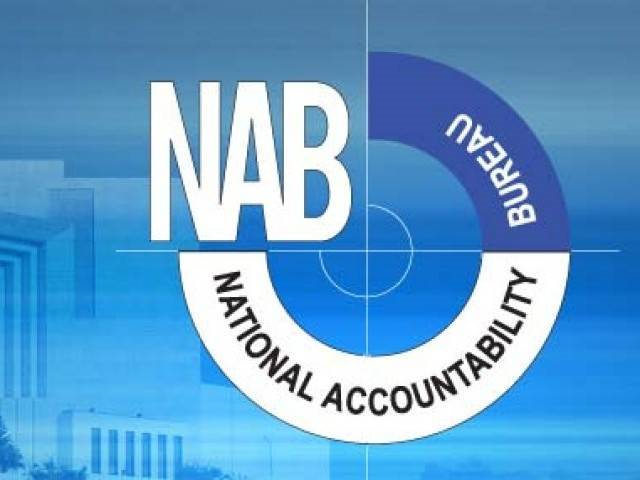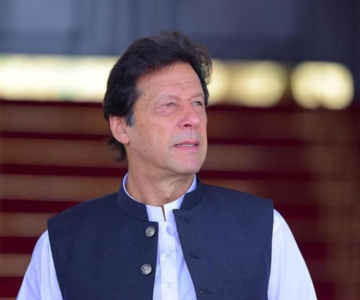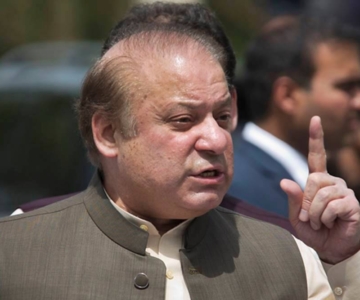As the year comes to an end and Imran Khan government completes 500 days in power, Raza Rumi reviews failure of the government’s so-called accountability drive. Amendments to NAB law indicate Imran Khan’s accountability drive is not working, he argues.
For a PM who has devoted more time to denouncing corruption and vowing not to give NRO (escape route) to the corrupt politicians — it must have been a tough decision to sign the proposals to amend the draconian and ineffective NAB law. This does not come as a surprise given the frequent U-turns that the Imran Khan government has taken during the past 16 months. But this one is of immense significance for it exposes the sham accountability at work and how the legal process is a political tool to beat and eliminate your opponents. And bear the cost of paralyzing business both in the markets as well as the bureaucratic labyrinths.
From PM Liaquat Ali Khan to the incumbent PM Khan, Pakistan’s democratic history is replete with instances where out of favour or ‘dangerous’ politicians are beaten with the accountability stick. Such tactics were also used against bureaucrats when great purges in the civil service were undertaken by the Ayub and Yahya regimes. However, since General Zia-ul-Haq’s notorious era, the accountability mantra has become the second nature of Pakistan’s praetorian state.
Sadly, we cannot blame military regimes exclusively, for the parent of the current NAB was the Ehtasab Commission, set up by Nawaz Sharif regime (1997-99) where extensive with-hunts were carried out against politicians, businessmen and media persons. The groundwork had been laid out when General Musharraf assumed power through a coup in 1999 and erected another shambolic edifice to reassure Pakistanis and the world about his ‘good intentions’ that had elimination of corruption in politics as the primary task.
However, Musharraf’s NAB law violated basic principle of justice by reversing the maxim that all accused were innocent until proven guilty. Under the NAB law, you are guilty until you prove your innocence. We witnessed this circus during the Panama case when Nawaz Sharif was asked to furnish money trails of properties his family had brought in 1990s. Nothing has come out of that accountability drive since Nawaz is back in the same flats, released by the same government, which used accountability gimmick to assume power with the tacit support of powers-that-be. Where in the world is a white-collar crime investigated with the help of agencies that are not trained to investigate complex financial and banking transactions?
The worst moment of this sham arrived when the former PM was disqualified, mind you, for life — on the basis of a residential permit (a long-term visa) for UAE, and for ‘unreceived’ salary that had not been declared before the authorities.
Imran Khan and his powerful supporters have poisoned the public mind about accountability and corruption. These words have become trite and devoid of any material value. The irony is that the common man faces corruption when he or she enters police station, a subordinate court, a local government agency or for that matter conducts any business with the state. Jinnah in his 1947 speech had spoken about bribery as a curse that the newfound country had to counter. But 72 years later, bribery is as pervasive as the ideas that flow from Pakistan Studies curricula textbooks.
If the state were interested in curbing corruption, they would have tackled the everyday humiliation that an ordinary Pakistani faces or reform the police department that operates as an embedded extraction system. But who will tell this to the all-knowing PM of ours? He has already wasted 16 months and is following the same path that General Musharraf followed after 2 years in power.
Musharraf had incarcerated all the tycoons, bureaucrats and politicians to recover ‘looted money’ in 1999 when NAB had a fierce general as its head. Within two years, the economy tanked and the growth rate fell as the business community refused to invest money. At that moment, wise counsel fell over Musharraf who knew for the stability of his dictatorship, he needed high level of economic growth and consumerism. Along with the reversal of the accountability process, 9/11 helped inject large amount of foreign exchange into the economy, thereby creating the bubble that is now cited as a defence of dictatorships. Therefore, Imran Khan’s change of heart is nothing but a deja vu moment. The truth is that if you squeeze big business, they get back at you and that too in a vicious manner. If there is a need to regulate the big business then there are bodies such as Competition Commission of Pakistan among others. The NAB stick is highly unsuited instrument to tackle corporate malfeasance.
Accountability slogan is even more ironic when the ruling party has embraced the same ‘looters’ and ‘dacoits’ in its fold and refuses to proceed against them while persecuting the opposition. It is also a sham because the ruling party fails to hold those to account who have embezzled money in the construction of BRT in Peshawar or land mafia that grabs land belonging to the poor peasants and launders money with no check.
Meanwhile, the royal failure to even question Malik Riaz has exposed the limits of Imran Khan’s power and intentions. We knew that he was sharing power, but the fact that he is completely powerless has just been certified by the new amendments or the in-camera cabinet proceedings about the Malik Riaz case.
To save himself itself from further embarrassment, the government should immediately release Shahid Khaqan Abbasi, Ahsan Iqbal and bureaucrats such as Fawad Hassan Fawad and Ahad Cheema who are merely paying the price of the perception that they are Sharif loyalists. Even if they are, they should be prosecuted under civil service laws and not be locked like murderers or dacoits.
Enough is enough.



